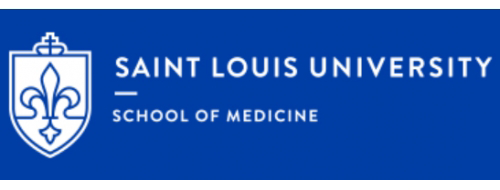Prevent Doctor Shortages by Preserving Graduate Medical Education
Washington University medical student Landon K. Oetjen authored this commentary published in the St. Louis Post-Dispatch Sept. 11, 2013
Prevent doctor shortages by preserving graduate medical education
By Landon K. Oetjen
The wait times to see your doctor in offices across America are about to get much longer, and the St. Louis region may be especially hard hit.
The main cause is a growing physician shortage in primary and specialist care. A projected 25 million new Americans will enter the U.S. health care system under the new health exchanges and Affordable Care Act. Meanwhile this past year, a Senate committee report numbered our current shortfall at 16,000 doctors, and the Association of American Medical Colleges projected that we will have a shortage of 62,000 physicians by 2015. Anyone who has recently tried to find a new family physician or has had to wait months to see a specialist knows that this shortage is already beginning to affect our health care here in Missouri.
Over the past two decades, Congress and state governments have made positive, bipartisan efforts to help the shortage. New medical schools have also opened, and existing schools have increased their class sizes to address the shortage appropriately. But, all these efforts fall short because of one enormous gap.
Physician training does not end after medical school graduation. New graduates must spend several years in graduate medical education programs, also known as residency programs, where they learn from more seasoned doctors and specialize in their field to obtain a license. Despite the increase in medical school graduates, the number of residency spots is not rising in parallel. In fact, residency training numbers have not risen significantly for nearly two decades due to program caps written into the Balanced Budget Act of 1997. We are training more MDs, but not providing them a residency through which to become licensed doctors that can take care of you and your family.
Residency training is funded by a combination of hospital resources and Medicare — as training doctors requires significant time on the part of veteran physicians. On top of the recent sequestration cuts, the 2014 White House budget proposes an additional $11 billion in dangerous cuts. The growing physician shortage means that, ultimately, patients will experience serious access-to-care issues ranging from delayed care to inability to find care. These cuts will hurt us especially in the St. Louis area, where two of the largest medical centers, the St. Louis University complex and the Barnes-Jewish complex, rely heavily on residents to provide care.
Medical students, resident trainees and physicians have been raising the issue of insufficient graduate medical education for years, but the recent budget cuts have inspired a fierce urgency for action across the country. We medical students have launched a national campaign, called America Deserves Doctors, to represent the voice of 50,000 medical students and our future patients.
I was inspired to take action through America Deserves Doctors and organized a group of my classmates at Washington University to meet with Sen. Roy Blunt’s and Sen. Claire McCaskill’s offices in St. Louis to discuss the impending physician shortage in undersupplied specialties and underserved areas. At the meeting, we asked for a simple fix to protect access to care and address physician shortages: to preserve, instead of cut, the funding for adequate graduate medical education. They heard our thoughts and agreed it was crucial to the health of our community and region.
As we met with our representatives we realized how sincerely everyone agrees that America not only needs doctors but deserves them. Visit the America Deserves Doctors Facebook page to join the conversation and find out how you can help. Together, we can set health care right.
Landon K. Oetjen is medical student at Washington University School of Medicine.



